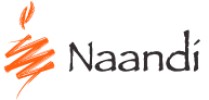Filter interviews by
FIND Interview Questions and Answers
FIND Interview Experiences
2 interviews found
(5 Questions)
- Q1. Can you provide your name, a brief description about yourself, and your hobbies?
- Q2. What skills and habits are essential for working from 9:30 AM to 2:30 PM?
- Q3. Morning temiges
- Q4. Hard worker I'm
- Q5. Saturday and Sunday
Interview Preparation Tips
Rate your
company
🤫 100% anonymous
How was your last interview experience?


(1 Question)
- Q1. They may ask any thing
(1 Question)
- Q1. They may ask any thing
Interview Preparation Tips
b. Annual increment will be 5%
c. you have to travel at least 2 places per month ,for 4 days but during travel also you have to check your mail regularly, during day time you have to work in lab and during night you have to check your mail and you have to prepare report accordingly .
d. During leave also you have to work as normal working day ,you have to prepare reports .
E. if your laptop is faulty then also you have to submit your reports on time .
e. There is no certainty that you will get your spent money .
f. Before travelling tyou have to payin advance but when you claim that time first you have to convert all bills in pdf then you have to merge all,then you have to write mode of payment on each bills .then you have to attach your bank statement or online payment proof .then they will ask for stamp on bills ,if you cant provide then forget your payment .you have to pay maximum through online .if you have to pay more than rs 5000 and vendor is not accepting online payment then foret you payment ..company wont reimbues you payment
g. if you have missed your flight due to any reason then you have to bare flight cost
.there is probability of loosin your money is high
Top trending discussions






Interview questions from similar companies

I applied via Company Website and was interviewed before Jun 2020. There were 3 interview rounds.
Interview Questionnaire
3 Questions
- Q1. How do you Handle Stress and Pressure?
- Q2. What is your Weakness and Strength?
- Q3. Why do you want to Leave your job?
Interview Preparation Tips

Assistant Manager Interview Questions & Answers
Dr. Reddy's Foundationposted on 5 Jul 2021
I applied via LinkedIn and was interviewed in Jan 2021. There were 3 interview rounds.
Interview Questionnaire
1 Question
- Q1. About your work profile
Interview Preparation Tips

(4 Questions)
- Q1. Tell me about yourself
- Q2. Why do you want to join
- Q3. What value can you add
- Ans.
I can bring a unique perspective and skill set to the team, as well as a strong work ethic and dedication to achieving goals.
Expertise in data analysis and visualization
Experience in project management and team leadership
Strong communication and interpersonal skills
Ability to think creatively and outside the box
Proven track record of meeting and exceeding targets
Examples: Developed a new data analysis tool that increas...
- Q4. Strengths and weaknesses
Interview Preparation Tips

I applied via Company Website and was interviewed before Feb 2023. There were 3 interview rounds.
(1 Question)
- Q1. Why TFi? Why social impact?
Session plans for your role
(2 Questions)
- Q1. How would you behave in different situations
- Q2. How would your friends describe you?
Interview Preparation Tips

LR and finance related questions
(1 Question)
- Q1. Liquidity ratios

I applied via Recruitment Consulltant and was interviewed before Aug 2021. There were 2 interview rounds.

(1 Question)
- Q1. What is your work experience
Interview Preparation Tips

I was interviewed in Feb 2017.
Interview Preparation Tips
Experience: A vast topic discussion with a conclusion that its not important.
Tips: Just have a clear idea and think twice before you speak.
Duration: 10 minutes
Round: HR Interview
Experience: Honestly the interviewer didnt look in a good mood. Her first reaction was that she does not want to look at my resume for no reason. And then she started asking me news which she might have not heard from any place, no newspaper, no tv channels nothing.
Tips: Be confident, be fierce. Sometimes the interviewer knows less than what you know. Stick to your point and dont fumble.
College Name: SRM University

Business Development and Marketing Interview Questions & Answers
AIESECposted on 24 Aug 2017
I was interviewed in Feb 2017.
Interview Questionnaire
1 Question
- Q1. My life so far, my motivation, future goals and contribution expected towards AIESEC.
Interview Preparation Tips
Experience: I had to fill up a form and give a rating scale test based on leadership and decision making.
Tips: Be honest with your answers.
Round: Guesstimate Interview
Experience: I was asked several questions which revolved around my career goals.
Tips: Be honest, humble and confident! :)
College Name: J.D.Birla Institute
FIND Interview FAQs
Recently Viewed
Tell us how to improve this page.
Interview Questions for Popular Designations
FIND Interview Process
based on 1 interview
Interview experience
Anonymously discuss salaries, work culture, and many more

Get Ambitionbox App
Interview Questions from Similar Companies
|
Regional Biomedical Engineer
6
salaries
| ₹0 L/yr - ₹0 L/yr |
|
Field Officer
5
salaries
| ₹0 L/yr - ₹0 L/yr |
|
Data Analyst
4
salaries
| ₹0 L/yr - ₹0 L/yr |
|
Senior Software Developer
4
salaries
| ₹0 L/yr - ₹0 L/yr |
|
Data Entry Operator
4
salaries
| ₹0 L/yr - ₹0 L/yr |

CARE

Magic Bus India Foundation

Dr. Reddy's Foundation

Labournet Services
- Home >
- Interviews >
- FIND Interview Questions









